第490章 VOLUME VII(19)
Your letter of [the] second received. Of course Governor Johnson will proceed with reorganization as the exigencies of the case appear to him to require. I do not apprehend he will think it necessary to deviate from my views to any ruinous extent. On one hasty reading I see no such deviation in his program, which you send.
A. LINCOLN.
TO W. M. FISHBACK.
WAR DEPARTMENT, WASHINGTON, February 17, 1864.
WILLIAM M. FISHBACK, Little Rock, Arkansas:
When I fixed a plan for an election in Arkansas I did it in ignorance that your convention was doing the same work. Since I learned the latter fact I have been constantly trying to yield my plan to them.
I have sent two letters to General Steele, and three or four despatches to you and others, saying that he, General Steele, must be master, but that it will probably be best for him to merely help the convention on its own plan. Some single mind must be master, else there will be no agreement in anything, and General Steele, commanding the military and being on the ground, is the best man to be that master. Even now citizens are telegraphing me to postpone the election to a later day than either that fixed by the convention or by me. This discord must be silenced.
A. LINCOLN.
TELEGRAM TO GENERAL STEELE.
EXECUTIVE MANSION, WASHINGTON, February 17, 1864.
MAJOR-GENERAL STEELE, Little Rock, Arkansas:
The day fixed by the convention for the election is probably the best, but you on the ground, and in consultation with gentlemen there, are to decide. I should have fixed no day for an election, presented no plan for reconstruction, had I known the convention was doing the same things. It is probably best that you merely assist the convention on their own plan, as to election day and all other matters I have already written and telegraphed this half a dozen times.
A. LINCOLN.
TELEGRAM TO A. ROBINSON.
EXECUTIVE MANSION, WASHINGTON, February 18, 1864.
A. ROBINSON, Leroy, N. Y.:
The law only obliges us to keep accounts with States, or at most Congressional Districts, and it would overwhelm us to attempt in counties, cities and towns. Nevertheless we do what we can to oblige in particular cases. In this view I send your dispatch to the Provost-Marshal General, asking him to do the best he can for you.
A. LINCOLN.
PROCLAMATION CONCERNING BLOCKADE, FEBRUARY 18, 1864.
BY THE PRESIDENT OF THE UNITED STATES
A Proclamation.
Whereas, by my proclamation of the nineteenth of April, one thousand eight hundred and sixty-one, the ports of the States of South Carolina, Georgia, Alabama, Florida, Mississippi, Louisiana, and Texas were, for reasons therein set forth, placed under blockade; and whereas, the port of Brownsville, in the district of Brazos Santiago, in the State of Texas, has since been blockaded, but as the blockade of said port may now be safely relaxed with advantage to the interests of commerce:
Now, therefore, be it known that I, Abraham Lincoln, President of the United States, pursuant to the authority in me vested by the fifth section of the act of Congress approved on the 13th of July, 1861, entitled " An act further to provide for the collection of duties on imports, and for other purposes," do hereby declare that the blockade of the said port of Brownsville shall so far cease and determine from and after this date, that commercial intercourse with said port, except as to persons, things, and information hereinafter specified, may, from this date, be carried on, subject to the laws of the United States, to the regulations prescribed by the Secretary of the Treasury, and, until the rebellion shall have been suppressed, to such orders as may be promulgated by the general commanding the department, or by an officer duly authorized by him and commanding at said port. This proclamation does not authorize or allow the shipment or conveyance of persons in, or intending to enter, the service of the insurgents, or of things or information intended for their use, or for their aid or comfort, nor, except upon the permission of the Secretary of War, or of some officer duly authorized by him, of the following prohibited articles, namely: cannon, mortars, firearms, pistols, bombs, grenades, powder, saltpeter, sulphur, balls, bullets, pikes, swords, boarding-caps (always excepting the quantity of the said articles which may be necessary for the defense of the ship and those who compose the crew), saddles, bridles, cartridge-bag material, percussion and other caps, clothing adapted for uniforms; sail-cloth of all kinds, hemp and cordage, intoxicating drinks other than beer and light native wines.
To vessels clearing from foreign ports and destined to the port of Brownsville, opened by this proclamation, licenses will be granted by consuls of the United States upon satisfactory evidence that the vessel so licensed will convey no persons, property, or information excepted or prohibited above, either to or from the said port; which licenses shall be exhibited to the collector of said port immediately on arrival, and, if required, to any officer in charge of the blockade, and on leaving said port every vessel will be required to have a clearance from the collector of the customs, according to law, showing no violation of the conditions of the license. Any violations of said conditions will involve the forfeiture and condemnation of the vessel and cargo, and the exclusion of all parties concerned from any further privilege of entering the United States during the war for any purpose whatever.
In all respects, except as herein specified, the existing blockade remains in full force and effect as hitherto established and maintained, nor is it relaxed by this proclamation except in regard to the port to which relaxation is or has been expressly applied.